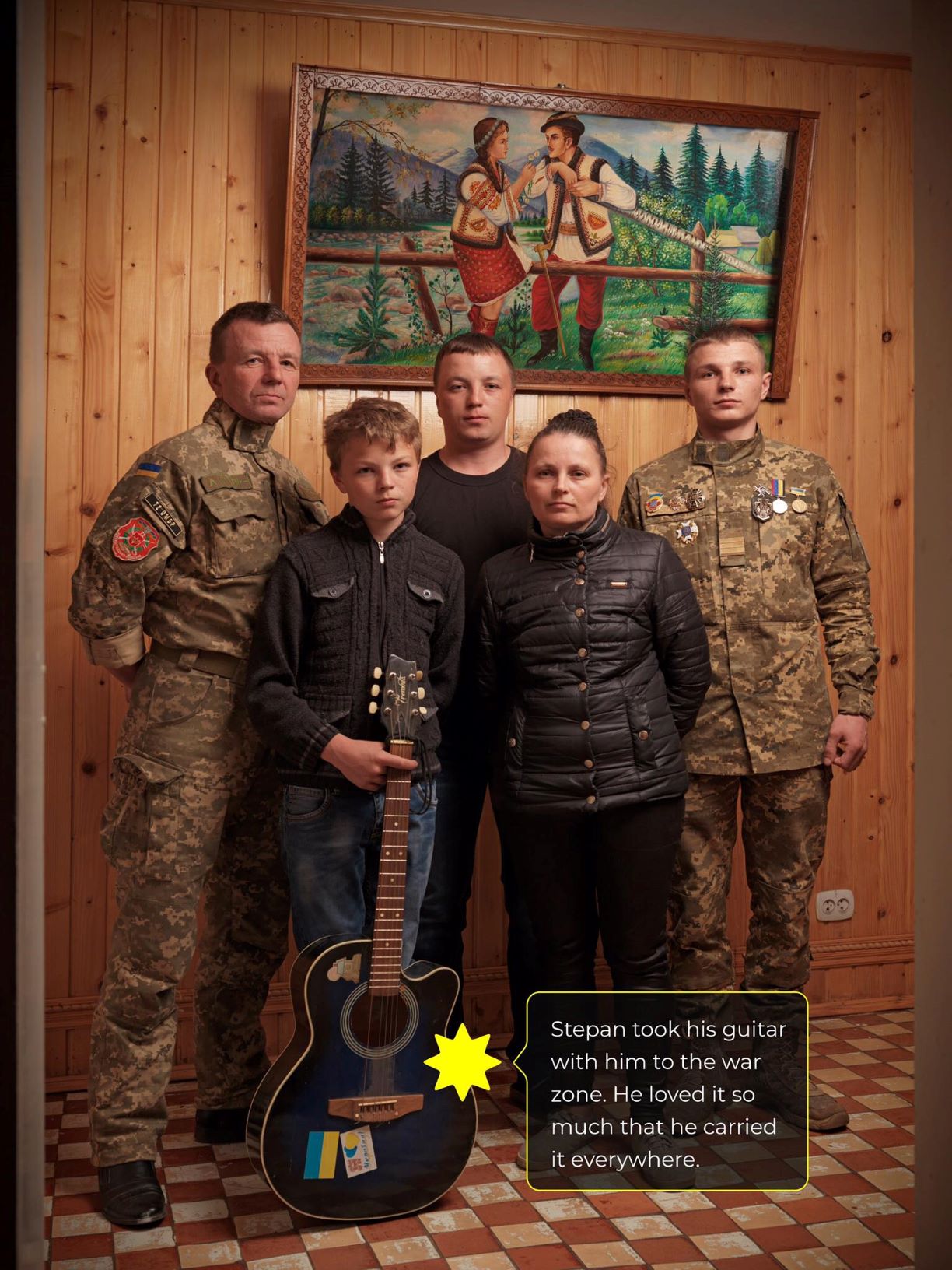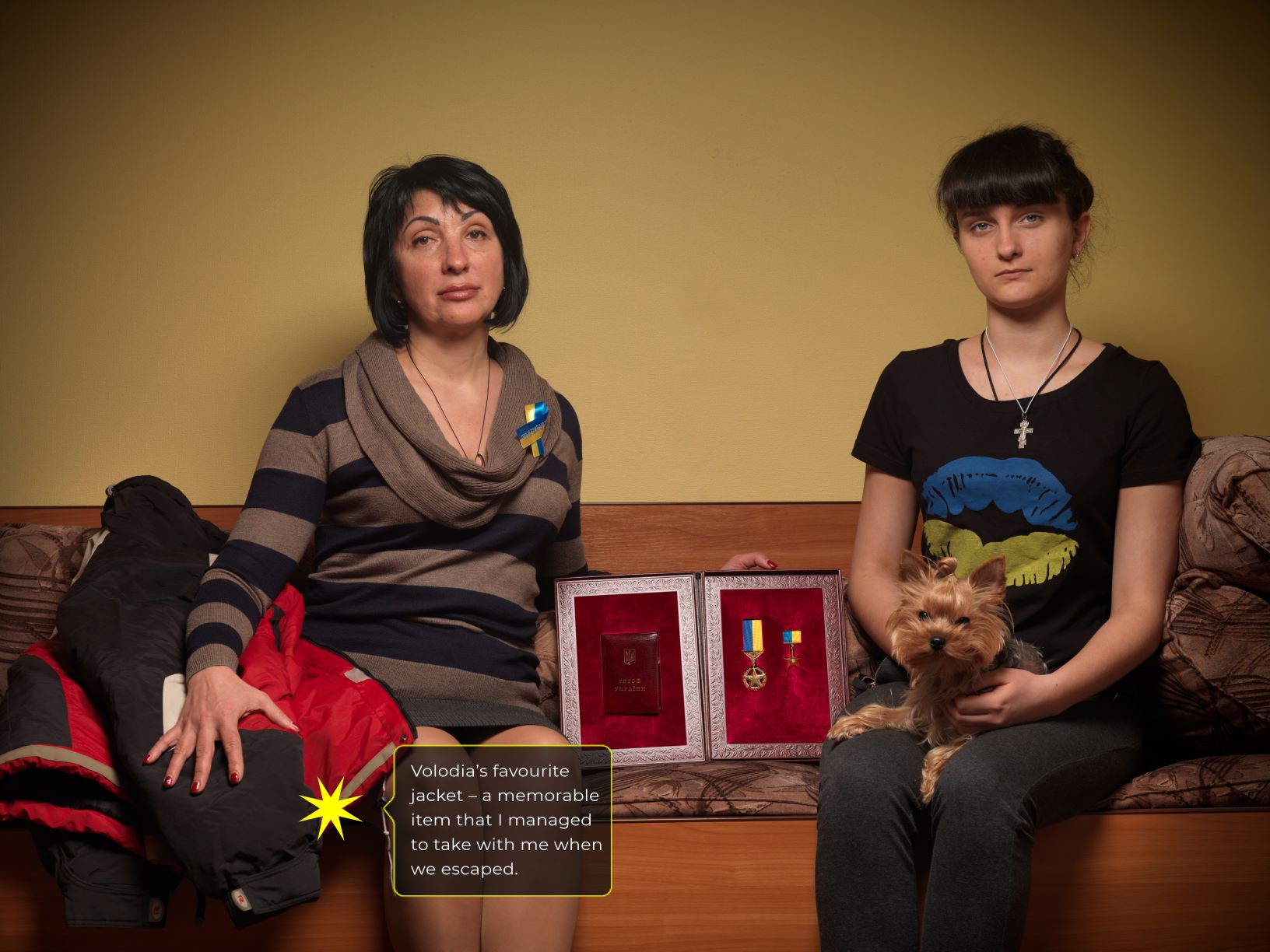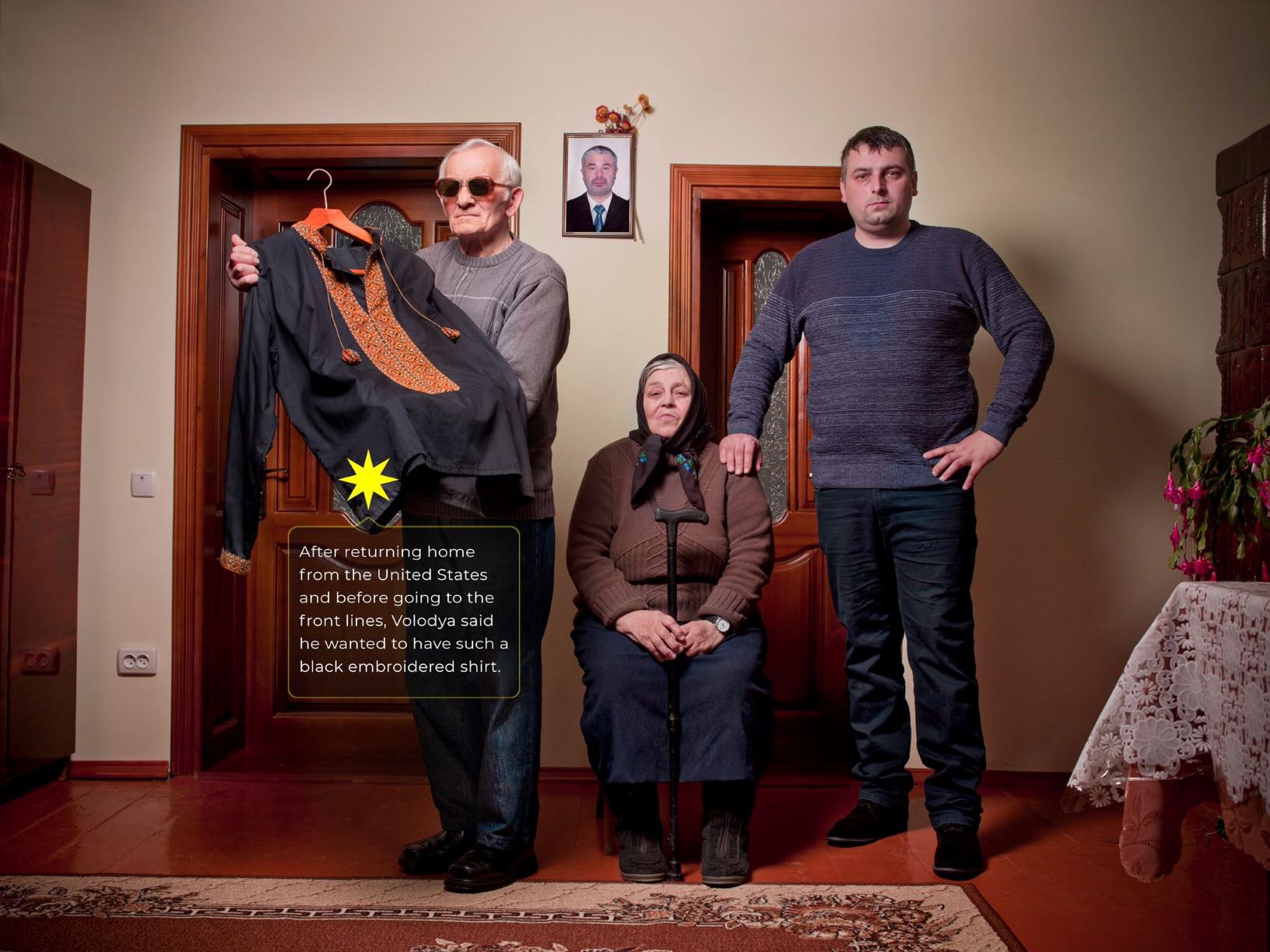On September 22, 2014, 19-year-old Stepan and his comrades were in a military vehicle heading for a reconnaissance mission to the village of Pisky, Donetsk Oblast. When the Russian-backed militants opened fire, the vehicle drove off the road into a field, where it hit a mine and exploded. Stepan died on the spot.
Stepan Stefurak served in the Pravy Sektor Volunteer Corps.
Ustym, Stepan, Vasyl. They were all healthy young men and alive, but that wasn’t the most important thing. That wasn’t enough for them. They risked everything in order to defend our dignity and honour, but first and foremost their own dignity and honour.
It is part of the Plus 1 project created to memorialize the fallen Defenders of Ukraine.
The story of one death
Author: Olena Stadnyk
People have been dying since the dawn of time. This is true from time immemorial. Man is mortal and doomed to death. Heroes do not die. Heroes become constellations. Heroes hold the sky over us.
On February 20, 2014, 19-year-old Ustym Holodniuk was killed in Kyiv. A sniper shot Ustym while he was running with his wooden shield and bandages to help the wounded on Instytutska Street. Just before his death, Ustym wrote in VKontakte: “Slaves are not admitted to paradise.” [VKontakte is a Russian online social media and social networking service-Ed]
On September 22, 2014, Stepan Stefurak was killed at the front in Pisky. 19-year-old Stepanchyk was buried in a closed coffin. Before his death, Stepan was also on VKontakte. He wrote: “Slaves are not admitted to paradise. Glory to the nation!”

February - the coffin with the body of the 19-year-old Hero travelled from Kyiv to Zbarazh, Ternopil Oblast. September - the coffin with the body of another 19-year-old Hero travelled from Dnipropetrovsk to Toporivtsi, Ivano-Frankivsk Oblast. 1200 kilometres. This has been happening for over six years. During the day, our roads transport the living, at night - the dead.
Stepan, a soldier with the Pravy Sektor Volunteer Corps, was killed on the birthday of his older brother, Vasyl, a sergeant serving in the 25th Battalion “Kyivska Rus-2” of the Armed Forces of Ukraine. Vasyl was in Debaltseve that day. He was just 21 years old. From Debaltseve, Vasyl tried to call Stepan in Pisky… while from Pisky, Stepan tried to call Vasyl in Debaltseve.
But, Pisky was under mortar fire, and Debaltseve – under Russian-operated Grads [multiple rocket launchers-Ed]. The mobile network appeared, and then disappeared, so we’ll never know exactly what Stepan wanted to say to Vasyl and Vasyl to Stepan. We only know for sure that both brothers received an SMS that day: “A subscriber has tried to call you. Please call back.”

In war, you get used to living from day to day. You don’t plan on living too long in a war. Birthdays give you the willies; they become terribly frustrating. You start counting the days. For some reason, it’s critical for Vasyl to survive until Monday. You start counting: “Friday - alive. Two more days. Saturday - alive. Another day. Monday - alive. Vasyl has lived to be 21!”
September 22, 2014. The suburbs of Debaltseve. Grad rockets. Boom-boom-boom. Across the road, in the open fields, the artillery holes gaped at us, but we were already celebrating and eating cake. It seemed that we’d overcome death.
Only in the morning did it become known that Stepan had been killed. That was all. It turned out that Vasyl was still with us, but we’d lost Stepan. Like in a simple game of chess.
Vasyl shouldn’t have gone to war. Both Vasyl and Stepan should have been sent home. I found Vasyl in Artemivsk. He recognized me, but didn’t move. He was sitting alone, in uniform, in a workshop. His body was shaking all over, as he slowly, silently, methodically sewed chevrons onto his combat jacket. He couldn’t let go of the needle in his hands. People don’t sew chevrons this way. This is how people agonize when they lose what they most love and cherish.
 Stepan’s brother looked at me only once. And turned away. He must have realized that I couldn’t help him in any way, that I was powerless and insignificant in the face of death. He continued doing the only logical thing that could be done at that moment. He continued sewing chevrons onto his jacket.
Stepan’s brother looked at me only once. And turned away. He must have realized that I couldn’t help him in any way, that I was powerless and insignificant in the face of death. He continued doing the only logical thing that could be done at that moment. He continued sewing chevrons onto his jacket.
1200 kilometres. It’s cold. The car won’t start. There are six of us near the coffin. His mother gives him a sedative and a stool to sit on. Vasyl’s mother throws a big warm jacket over his shoulders. Whose mother is it? Ah, it’s our mother. Vasyl grips his brother’s coffin, his body shaking uncontrollably. .
The coffin is covered with a red-and-black flag. The flag of our perpetual struggle. Nearby stands “Strila” holding a huge bouquet of blue and yellow flowers. Red and black. Blue and yellow. And devastating silence…
Stepan’s personal belongings. A wristwatch. Tactical goggles. A mobile phone. Do you know what will happen if you turn on his mobile? It will start ringing and vibrating in your hands, and the most heartbreaking word – “Mama” - will appear on the blue screen. You’ll probably want to fade away and die, but you’ll have to answer this call.
- Hello, Stepanchyk, my little one, is that you? Stepanchyk?!
- No, Mom. It’s me, Vasyl. Stepanchyk is no more. Our Stepanchyk is no more.”
Ternopil. The Polytechnic Institute. Stepan studied here. All the students are on their knees. “Пливе кача”* echoes in the heavy air. The town of Horodenka. All the people on their knees. “Пливе кача”. Requiem. The village. All the villagers on their knees. Requiem and burial.
(*“Пливе кача по Тисині” (Plyve Kacha po Tysyni - As the duck floats along the
Tysyna River) is an ancient Lemko song of mourning that became the official requiem for the Heavenly Hundred and for those who died in the Revolution of Dignity in 2014 – Ed)
At six in the morning, Vasyl opened the coffin. His brother’s face was gone, but the curls remained, the familiar curls of a younger brother’s hair. He was always very quiet and very calm. Very gentle and very silent. How strong is Vasyl’s desire to see and embrace him once more, to make sure that it’s really him, his family, his blood, his younger brother…
They lowered the coffin into the grave. They didn’t know what to do next. No one dared move. The father of Ustym Holodniuk, who was killed on Instytutska, shouted:
“Why are you just standing around? Bury our Hero! Heroes must be buried with our hands!”
 Vasyl was the first. He scraped up the soil with his hands. Our black, wet, native soil; the earth that had had begat him and the earth that buried him. Chornozem, moist, black soil, black hands, face and clothes. People rushed in to help, as if in that single movement there was a fleeting salvation from such pain. The shovels didn’t work that day. The Hero was buried with our hands.
Vasyl was the first. He scraped up the soil with his hands. Our black, wet, native soil; the earth that had had begat him and the earth that buried him. Chornozem, moist, black soil, black hands, face and clothes. People rushed in to help, as if in that single movement there was a fleeting salvation from such pain. The shovels didn’t work that day. The Hero was buried with our hands.
A mother feels the pain of loss like no one else. She turns to Vasyl; she wants to take him away, refuses to give him back to the world. She loves her son, but the world does not. The world does not understand, does not care. The world sends him to war. His mother cries: “Don’t go back. Don’t go there anymore. Stay with me!”

But, what can a soldier reply? In ten days, Vasyl will return to the front. From August to February, Vasyl will defend Debaltseve. He, like most of those who defended Debaltseve, will be surrounded by the enemy. He will be one of the last to leave the city. There will be many wounded. Wounded but alive.
People say: “The main thing is that he’s alive!” And I won’t be able to explain anything to them; I can’t find the right words ... Ustym, Stepan, Vasyl. They were all healthy young men and alive, but that wasn’t the most important thing. That wasn’t enough for them. They risked everything in order to defend our dignity and honour, but first and foremost their own dignity and honour.
The project is built around 22 individual exhibition stands. In iconic and powerful moments captured by a photographer’s camera – Youry Bilak, a Frenchman of Ukrainian descent – Ukrainian families tell the stories of their loved ones – Ukrainian soldiers who perished in the war. Each narrative, each individual is but one small grain, one tiny unit of a module in a living organism. By telling his story, we bring him back to life.
Each family chose an object that most reminds them of their departed: a father’s jacket, a guitar, a suit of medieval armour, a book. These family artifacts reflect a living continuation of the departed loved one. Ukrainian artists, intellectuals, and journalists were invited to create original texts about each soldier.





